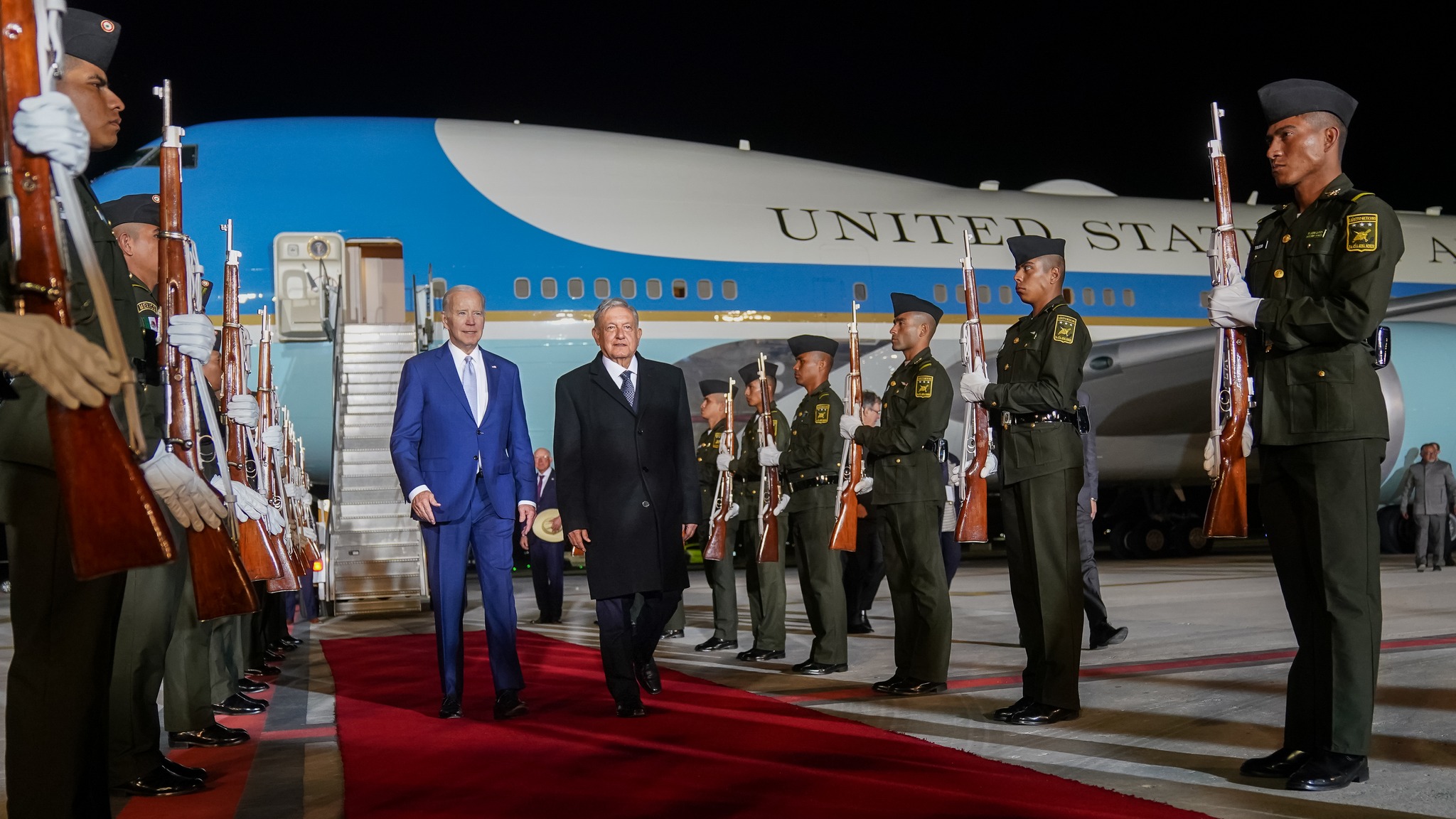On January 9 and 10, President Joe Biden made his first visit to Mexico while in office—and the first of any United States president since Obama in 2014. There, he participated in the so-called “Three Amigos” summit with President Andres Manuel López Obrador of Mexico and Canadian Prime Minister Justin Trudeau. The three North American leaders discussed immigration, trade, technology, security and, of course, drugs.
Unsurprisingly, during the press conference that followed, the leaders promised to continue the drug war, with fentanyl the primary target. Biden and López Obrador spoke about their efforts to police borders with increased surveillance technology, and use armed forces to track fentanyl precursor chemicals and destroy clandestine laboratories.
In their comments, the leaders focused heavily on the “scourge” of fentanyl.
Of course, supply-side crackdowns in general, and this kind of militarized and high-tech campaign against fentanyl in particular, have for years failed to halt the supply while perpetrating severe harms. Aside from the damage directly caused by law enforcement, aggressively targeting supplies encourages trafficking organizations to switch to cheaper and more potent forms of drugs to decrease detection chances and increase profits.
It’s also notable that Biden made zero mention of strengthening harm reduction, treatment or health services, all talking points of his administration—very imperfectly adhered to—when it comes to domestic policy.
In their comments, the leaders focused heavily on the “scourge” of fentanyl, seemingly oblivious to the consequences of their policies.
Biden said, “We’re working together to take on the scourge of human smuggling and illegal drug trafficking. In just the last six months, our joint patrols in Mexico have resulted in the arrest of more than 7,000 human smugglers. We’ve seized more than 20,000 pounds of deadly fentanyl at the border. And today, we’ve discussed how all three of us can deepen and strengthen our shared efforts to cut off the flow of illegal fentanyl, including by tackling the precursor chemicals used in synthetic drugs as we go after the labs where they’re made and the stash houses we’re they’re stored.”
López Obrador said, “In the case of drugs, it’s no more marijuana, or poppies, or cocaine. Now it’s fentanyl and the chemicals that are the most dangerous and harmful, because they cause many deaths.”
“We are stopping the entrance of these chemicals, and destroying labs.”
“In the case of Mexico, it has forced us to put all our ports and customs under control of armed forces,” he continued, “[because] fentanyl and other chemicals come from Asia, and the drugs are manufactured in laboratories. We are stopping the entrance of these chemicals, and destroying labs.”
López Obrador said that the three nations must work together on this. “It’s not just their [US] problem—if we don’t confront this scourge, we Mexicans will suffer too.”
López Obrador additionally railed against the media and pop culture that he considers glorify a narco lifestyle. “We must consider—drugs have became famous in connection with musicians, and even television shows about organized crime,” he said. “You see luxurious houses, high-end cars, beautiful men and women with jewelry, with so much power who pick up the phone and speak with a police or military captain—or even a president. That’s how it spreads.”
“The media must also assist us—the radio and TV stations should dedicate time to speaking about the harms caused by drugs,” he said, “And to say that you can be happy and successful without falling into these deadly traps.”
Immigration and Surveillance
Before the summit, Biden had stopped in El Paso, Texas to make his first visit to the US-Mexico border as president. And he and López Obrador both spoke about the need to consider the problems that cause thousands of migrants to leave their countries, and the dangers they face in crossing borders.
They “run many risks,” López Obrador said. “They are victims of human smugglers, whom we call ‘coyotes’ or polleros—they charge them money to go north. These smugglers have networks, and in their place contract trailers. One trailer can transport 300-400 people. Accidents are frequent on our highways, sadly. And worse, many migrants are kidnapped by organized crime, or murdered, which is very sad and painful.”
“We also maintain that people don’t leave their families and towns by choice, they do it out of necessity,” he continued. “We have always said we must attend to the root causes, to make it so people can work and be happy where they were born and where their families, customs and cultures are. We must invest more in the countries with great inequality and poverty. Migration must be optional, not forced.
“We have to increase the technological capabilities at the border,” Biden said. “Both to intercept illegal drugs and other contraband, as well as people being smuggled across the border.” He described a “giant X-ray machine” used by border authorities to detect unauthorized people or drugs being moved by vehicle.
Meanwhile, Trudeau specifically addressed the crisis in Haiti, and spoke in support of international, military and police interventions in the country.
“But we need to make sure that the solutions are driven by the people of Haiti themselves,” he said. “That’s why Canada’s focus [is on] putting significant sanctions on the elites who are responsible for so much of the violence and political instability in Haiti.” Trudeau pledged to support the Haitian National Police directly with armored vehicles so they can “stabilize” the situation.
But he seemed to not rule out further direct intervention from outside nations. “We are working with partners [the US, Mexico and other countries] to ensure that if the situation starts to deteriorate once again, we will have options.”
Photograph of President Joe Biden and President Andres Manuel Lopez Obrador meeting at Felipe Angeles International Airport in Mexico via Facebook





Show Comments